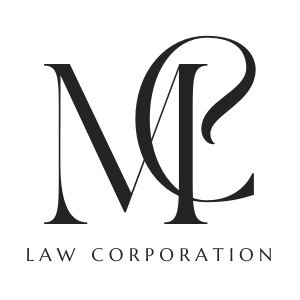Best Creditor Lawyers in Singapore
Share your needs with us, get contacted by law firms.
Free. Takes 2 min.
Or refine your search by selecting a city:
List of the best lawyers in Singapore
About Creditor Law in Singapore
Creditor law in Singapore encompasses the rules and regulations governing the rights and obligations of creditors, including the collection of debts, enforcement of claims, and the handling of insolvency situations. The legal framework is designed to ensure fair treatment of creditors while providing debtors with adequate protection. In Singapore, creditor rights are primarily governed by statutes such as the Bankruptcy Act, the Companies Act, and the Insolvency, Restructuring and Dissolution Act, alongside other relevant legal principles.
Why You May Need a Lawyer
There are various scenarios where individuals or businesses may seek legal advice in the area of creditor law in Singapore:
- If you are a creditor seeking to recover unpaid debts from individuals or companies.
- If you face issues related to debt collection practices and need to understand your legal rights.
- If you are involved in insolvency proceedings, whether as a creditor, debtor, or stakeholder.
- If there are disputes over the validity or enforcement of security interests.
- If you need to negotiate credit agreements or debt restructuring with debtors.
In such cases, a lawyer can provide guidance, represent your interests in court, and help ensure that your rights are adequately protected.
Local Laws Overview
Creditor law in Singapore is underpinned by several key legal instruments and principles:
- Insolvency, Restructuring and Dissolution Act (IRDA): This act governs the insolvency procedures for both individuals and corporations, providing frameworks for bankruptcy and corporate restructuring.
- Bankruptcy Act: This act outlines the procedures for personal bankruptcy and offers protection measures for debtors while affirming the rights of creditors.
- Companies Act: This act includes provisions on the rights of creditors during company liquidations.
- Debt Collection Regulations: These regulations prevent unfair practices and ensure ethical conduct in debt collection activities.
- Judicial management and schemes of arrangement: These mechanisms allow for debt restructuring under court supervision to facilitate business recovery.
Understanding these laws can be complex, which is why professional legal advice is often necessary.
Frequently Asked Questions
What is the process for recovering debts in Singapore?
The process typically begins with demand letters and negotiations. If unsuccessful, creditors may proceed with legal action, such as applying for a court order or filing a bankruptcy petition against the debtor.
How do I know if a debtor is insolvent?
Insolvency is determined by the debtor's inability to pay debts as they fall due. For companies, an official declaration by the court is usually necessary.
What are the consequences for a debtor declaring bankruptcy?
Bankruptcy affects the debtor's credit rating, restricts certain financial activities, and involves the appointment of an Official Assignee to manage the debtor's estate.
Can creditors claim assets in a bankruptcy or liquidation?
Yes, creditors can file claims to recover part of their debts. They may receive distributions from the debtor's estate based on priority rules established by the law.
What happens if a debtor fails to comply with a court order to pay?
The creditor may take further legal action, such as filing for the debtor's bankruptcy, seeking a garnishee order, or requesting a writ of execution against the debtor's assets.
Are there limitations on how much can be claimed in bankruptcy proceedings?
There are no specific limitations on claim amounts in bankruptcy proceedings. However, claims should reflect the actual debts owed and must be substantiated with evidence.
How are secured and unsecured creditors treated differently?
Secured creditors have a preferential claim on specific assets pledged as security, which are realized to satisfy their debts. Unsecured creditors may receive only a proportional distribution from the remaining estate after secured and priority claims are settled.
What is a judicial management order?
It is an order placing a company under judicial management to allow restructuring efforts for financial recovery, providing temporary protection from liquidation proceedings by creditors.
Can I appeal a bankruptcy order?
Yes, a debtor may appeal the decision within a specified period if there are grounds to challenge the legitimacy or circumstances of the order.
What rights do creditors have during company restructuring?
Creditors may participate in meetings, vote on proposed schemes of arrangement, and have their interests considered in court-approved restructuring plans.
Additional Resources
For those seeking more information, the following resources may be helpful:
- Insolvency and Public Trustee’s Office (IPTO): Offers guidance and services related to insolvency and public administration.
- Law Society of Singapore: Provides access to legal resources and directories to find legal professionals.
- Singapore Academy of Law: Offers legal research materials and publications.
- Credit Counselling Singapore: A non-profit organization offering advice and support on debt management.
Next Steps
If you need legal assistance in creditor matters, consider the following steps:
- Identify Your Needs: Clearly define the legal issue you are facing and gather all relevant documentation.
- Seek Legal Advice: Contact a lawyer specializing in creditor and insolvency law for professional guidance.
- Consider Mediation: Explore alternative dispute resolution options, such as mediation, to potentially resolve issues without litigation.
- Prepare for Legal Proceedings: If necessary, be ready for court filings or claims, with your lawyer's assistance, to protect your interests.
Working with a qualified lawyer can be critical in navigating the complexities of creditor law efficiently and effectively.
Lawzana helps you find the best lawyers and law firms in Singapore through a curated and pre-screened list of qualified legal professionals. Our platform offers rankings and detailed profiles of attorneys and law firms, allowing you to compare based on practice areas, including Creditor, experience, and client feedback.
Each profile includes a description of the firm's areas of practice, client reviews, team members and partners, year of establishment, spoken languages, office locations, contact information, social media presence, and any published articles or resources. Most firms on our platform speak English and are experienced in both local and international legal matters.
Get a quote from top-rated law firms in Singapore — quickly, securely, and without unnecessary hassle.
Disclaimer:
The information provided on this page is for general informational purposes only and does not constitute legal advice. While we strive to ensure the accuracy and relevance of the content, legal information may change over time, and interpretations of the law can vary. You should always consult with a qualified legal professional for advice specific to your situation.
We disclaim all liability for actions taken or not taken based on the content of this page. If you believe any information is incorrect or outdated, please contact us, and we will review and update it where appropriate.
Browse creditor law firms by city in Singapore
Refine your search by selecting a city.














